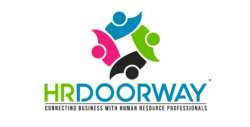ATS/HRIS
Applicant Tracking System
An applicant tracking system is a software application that enables the electronic handling of recruitment and hiring needs. An ATS can be implemented or accessed online at enterprise or small business levels, depending on the needs of the organization.
Human Resources Management System
A human resources management system or human resources information system or human capital management is a form of human resources software that combines a number of systems and processes to ensure the easy management of human resources, business processes and data.
Background Checks
An employment background check can include, but is not limited to, a person’s work history, education, credit history, motor vehicle reports (MVRs), criminal record, medical history, use of social media, and drug screening. If the position is specialized, applicants and employees may undergo further screenings.
Benefits & Insurance
Employee benefits are defined as indirect, non-cash, or cash compensation paid to an employee above and beyond regular salary or wages. Workers compensation insurance or workers’ comp is a form of insurance providing wage replacement and medical benefits to employees injured in the course of employment in exchange for mandatory relinquishment of the employee’s right to sue his or her employer for the tort of negligence.
CRM
Customer relationship management is the process of managing interactions with existing as well as past and potential customers. It is one of many different approaches that allow a company to manage and analyze its own interactions with its past, current and potential customers.
Payroll
A payroll service is an outside company that special¬izes in every aspect of the payroll process.
PEO
A professional employer organization (PEO) is an outsourcing firm that provides services to small and medium-sized businesses (SMBs). Typically, the PEO offering may include human resource consulting, safety and risk mitigation services, payroll processing, employer payroll tax filing, workers’ compensation insurance, health benefits, employers’ practice and liability insurance (EPLI), retirement vehicles (401(k)), regulatory compliance assistance, workforce management technology, and training and development.
Recruiting
Recruitment refers to the overall process of identifying, attracting, screening, shortlisting, and interviewing, suitable candidates for jobs (either permanent or temporary) for an organization. Recruitment can also refer to processes involved in choosing individuals for unpaid roles.
Social Recruiting
Social recruiting is recruiting candidates by using social platforms as talent databases or for advertising. Social recruiting uses social media profiles, blogs, and other Internet sites to find information on candidates.










